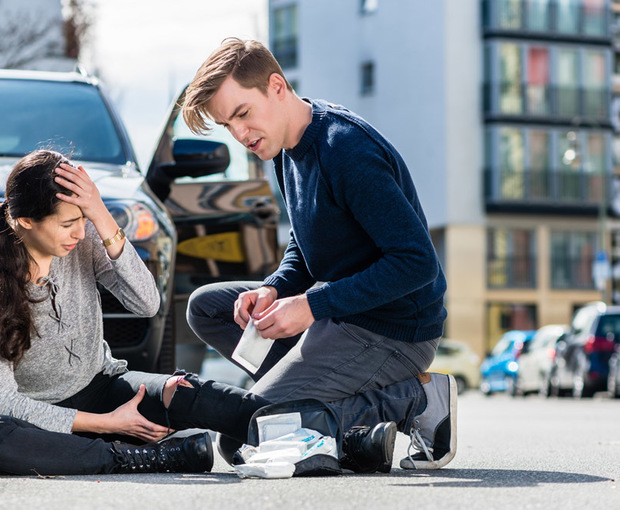
Basic First Aid Tips
When someone is injured or suddenly becomes ill, there is usually a critical period before you can get medical treatment and it is this period that is of the utmost importance to the victim. You owe it to yourself, your family and your neighbours to know and to understand procedures that you can apply quickly in an emergency.
Make sure your household has a first aid kit. Tailor your supplies to fit your particular needs. Do not store supplies in your medicine cabinet among toothpaste and cosmetics. Supplies need to be clearly marked and readily available in an emergency. Also, make sure your kit is unlocked to provide easy access.
Keep your first aid kit, all medications, including non-prescription drugs out of children's reach. When discarding drugs, be sure to dispose of them where children or pets cannot retrieve them.
Before assisting a victim, protect yourself first. Assess the scene and determine the prevalent hazards, if any. Whenever possible, wear gloves to protect yourself from blood and other bodily fluids.
When an emergency occurs, make sure the tongue does not block the victim's airway and that the mouth is free of any secretions and foreign objects. It's extremely important that the person is breathing freely. And if not, you must administer artificial respiration promptly.
See that the victim has a pulse and good blood circulation as you check for signs of bleeding. Act fast if the victim is bleeding severely, swallowed poison or his heart or breathing has stopped. Remember every second counts.
It's vitally important not to move a person with serious neck or back injuries unless you have to save him from further danger. If he has vomited and there is no danger that his neck is broken, turn him aside to prevent choking and keep him warm by covering him with blankets or coats.
Have someone call for medical assistance while you apply first aid. The person who summons help should explain the nature of the emergency and ask what should be done pending the arrival of the ambulance. Reassure the victim, and try to remain calm yourself. Your calmness can relieve the fear and panic of the patient.
Don't give fluids to an unconscious or semiconscious person. Fluids may enter his windpipe and cause suffocation. Don't try to arouse an unconscious person by slapping or shaking.
Look for an emergency medical identification card or an emblematic device that the victim may be wearing to alert you to any health problems, allergies or diseases that may require special care.
Related articles

Elevate Your Game: Shockwave and Laser Therapy for Tennis and Golfer's Elbow

The types of headaches

